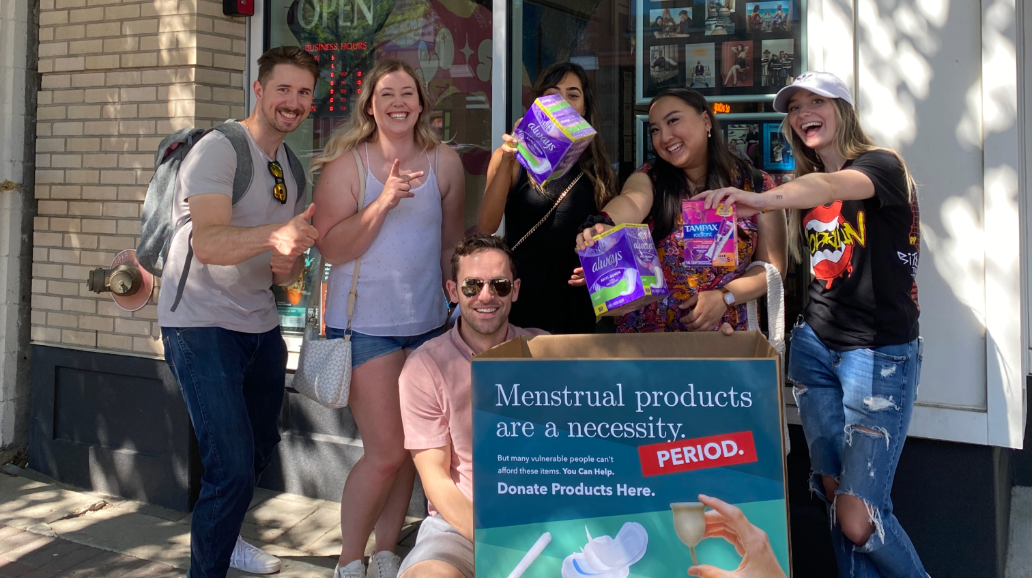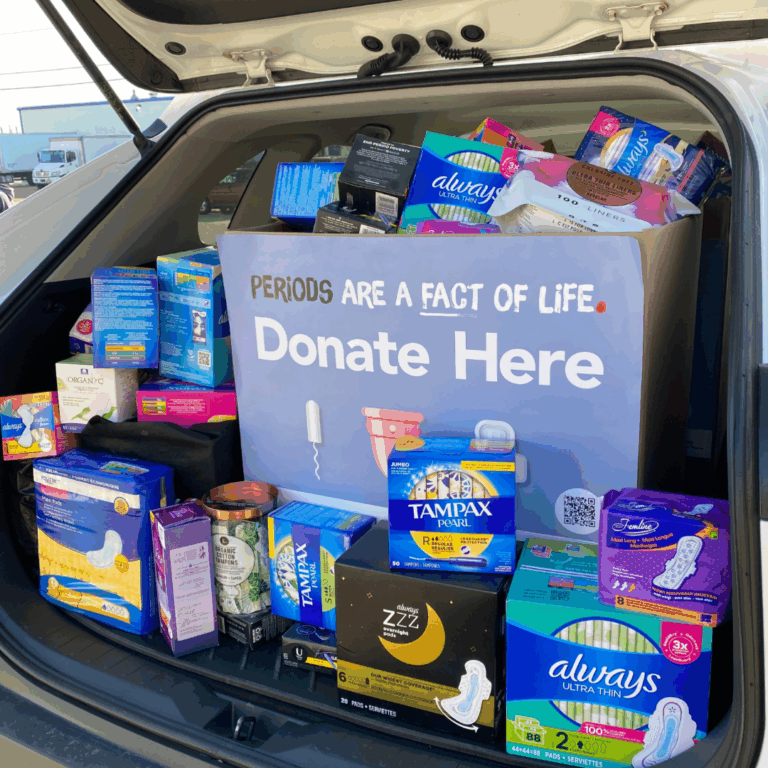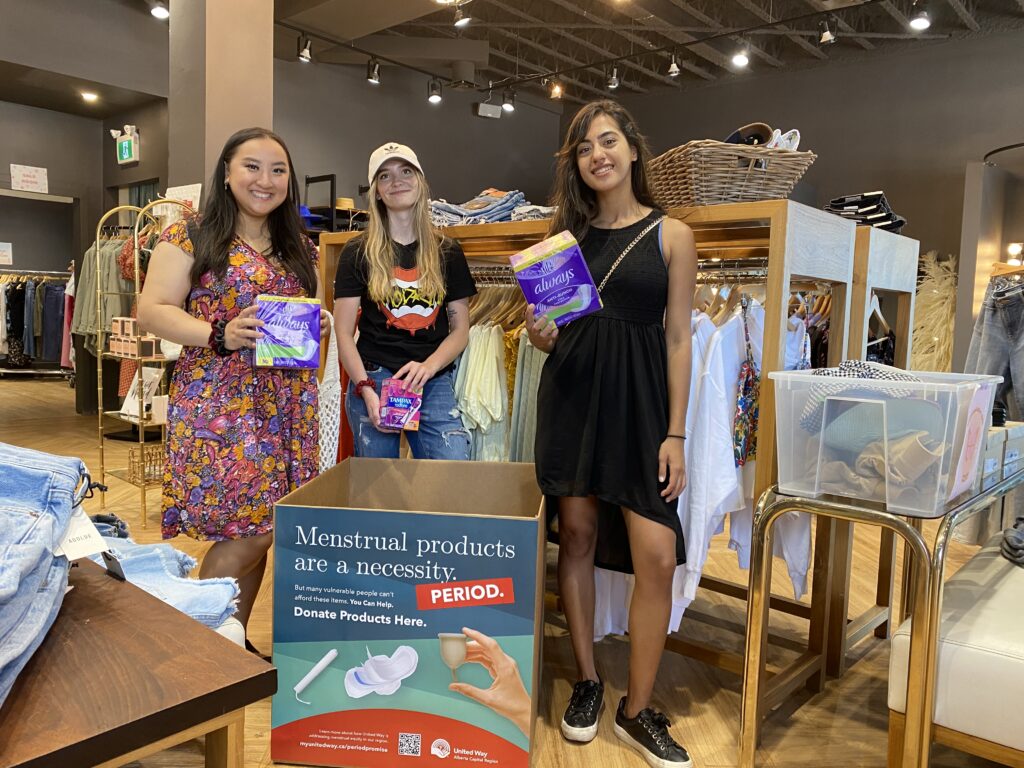Five ways men can celebrate menstruation this Menstrual Health Awareness Month
May 21, 2025

Language note: We’re using ‘man’ or ‘men’ throughout this article to describe anyone who hasn’t personally experienced menstruation. But we acknowledge that this term lacks some nuance and may not describe everyone’s experience or gender identity.
May is Menstrual Health Awareness Month – a time to talk openly, learn boldly, and celebrate something that half the world experiences: menstruation.
Yes, celebrate.
Because menstruation is not just a biological function. It’s a sign of health. A part of life. A source of strength and resilience. And when we celebrate it instead of hiding it, we help build a more inclusive, informed, and supportive community for everyone.
And if you’re a man wondering what this has to do with you? The answer is: a lot.
Menstruation is not a “women’s issue”, it’s a human issue
We all have people in our lives who menstruate — our partners, friends, coworkers, siblings, children. And not all of them are women: trans men and non-binary people may menstruate too. Yet, for generations, many of us were taught to treat periods as taboo. Something shameful. Something to avoid.
That silence hasn’t helped anyone.
Menstruation should be talked about in the open. Because when we talk, we break down stigma. When we understand, we grow empathy. And when we act, we create lasting change.
Here’s 5 ways men can celebrate menstruation:
1. Start by understanding
Menstruation is part of how the human body works. When men take the time to understand how periods work, what people who menstruate experience, and the systemic barriers that impact menstrual health, it creates space for more respectful and compassionate conversations.
Try to:
- Start with the basics. Learn how the menstrual cycle works, what’s typical, and what’s not.
- Ask, don’t assume. If someone in your life is open to talking about their experience, listen with curiosity and respect. Not only is everyone’s experience of menstruation different, but it can also change throughout their life—sometimes even period to period!
- Understand the mental load. Periods are more than physical—pain and changes in hormones can affect energy, emotions, and concentration. Knowing these impacts can help you offer support when it’s needed most.
- Explore how periods affect trans men and non-binary people.
2. Talk Openly and Respectfully
If you’re a dad, uncle, coach, or teacher, the way you speak about periods can leave a lasting impression. Normalize it. Be the guy who offers to pick up tampons without flinching. Talk about periods the way you’d talk about anything else related to health and well-being, with openness and respect.
Try to:
- Use the word “period.” Avoid euphemisms like “that time of the month” or “lady problems.” Using direct, respectful language normalizes the topic.
- Speak up when others joke. Period jokes and stigma can be hurtful. Challenge myths or dismissive comments when you hear them, especially in male-dominated spaces.
3. Celebrate the Power of Periods
Periods are part of a life-giving biological cycle and a symbol of strength and resilience. But the truth is, periods can be uncomfortable, and for some, they can be debilitating.
While many carry on with school, work, caregiving, and community life through cramps, fatigue, or discomfort, others may have to miss those very activities due to severe pain or lack of access to menstrual products. That reality deserves recognition, not silence.
Celebrating menstrual health is about honouring all experiences with menstruation, including those impacted by conditions like endometriosis or PCOS. It’s not about “toughing it out.” It’s about empathy, access, and support.
Try to:
- Recognize the reality. Acknowledge that periods can be uncomfortable, exhausting, or disruptive, and that’s okay. It’s also okay to need rest, time off, or accommodations when symptoms become severe.
- Champion understanding and flexibility. Whether it’s in workplaces, schools, or communities, let’s support policies and attitudes that accommodate people whose periods impact their daily lives.
- Uplift stories of menstrual health. Share articles, videos, or personal stories that shine a light on period positivity.

4. Support Access and Equity
While we celebrate, we also recognize that not everyone experiences menstruation equally or equitably. Period poverty is a very real issue, and it’s closer to home than many realize. Nearly one in four people who menstruate in Canada say they’ve struggled to afford menstrual products for themselves or their children.
The cost of products is just one barrier. Trans and non-binary people often face additional challenges, like feeling unsafe or stigmatized when accessing products, or finding they aren’t available in washrooms that match their gender identity.
United Way’s Period Promise initiative makes it easy to turn celebration into support. Together, we’re helping ensure that period products are available, free, and stigma-free across schools, organizations, and frontline agencies.
You can help by:
- Donating to the Period Promise initiative.
- Hosting a period product drive with your team or community group.
- Encouraging your workplace to join the Period Promise Pledge and provide free menstrual products for staff and visitors in ALL washrooms, not just women’s.
“As a champion for wellbeing for Albertans, Alberta Blue Cross is proud to sponsor the Period Promise campaign to support equitable access to menstrual health products,” says Brian Geislinger, Senior Vice-President of Corporate Relations and Community Engagement with Alberta Blue Cross.
“And as a husband and dad to three daughters, I’m also proud to be talking openly about menstruation because it’s important that as males we recognize our role in destigmatizing the conversation around menstrual health.”
5. Make Menstrual Equity a Year-Round Conversation
Menstrual Health Awareness Month is a great time to start, but this work should continue all year. Keep learning. Keep talking. Keep showing up for the people in your life who menstruate. Your voice matters more than you might think.
Try to:
- Keep asking questions. Follow accounts or newsletters that share period-positive content. Learn about how menstruation intersects with poverty, gender identity, and workplace equity.
- Start conversations where you can. Whether it’s in a team meeting or a casual chat, bringing up menstrual equity helps break down stigma and normalize the issue.
- Be prepared. Keep menstrual products on hand (at home, at work, or in your car) so you can support someone who might need them in an emergency.

When we celebrate menstruation, we celebrate health. Dignity. Inclusion. And shared humanity.
Let’s normalize the conversation. Let’s show up with empathy. And let’s make sure that every person who menstruates feels seen, respected, and supported.
Learn More


